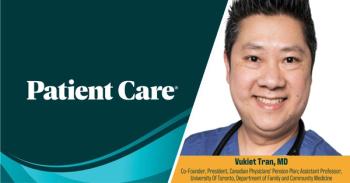
The Journal of Respiratory Diseases
- The Journal of Respiratory Diseases Vol 28 No 7
- Volume 28
- Issue 7
Is your job putting you-- or your staff-- at risk for asthma?
The risks of occupational asthma have been established in a number of groups, such as farmers and workers who are exposed to certain chemicals, such as isocyanates. The results of a study conducted by Delclos and associates provide insight into the risks of asthma in healthcare workers. The bottom line: the risk of asthma is increased about 2-fold in persons whose tasks involve instrument cleaning and disinfection, use of general cleaning products, and administration of aerosolized medications.
The risks of occupational asthma have been established in a number of groups, such as farmers and workers who are exposed to certain chemicals, such as isocyanates. The results of a study conducted by Delclos and associates provide insight into the risks of asthma in healthcare workers. The bottom line: the risk of asthma is increased about 2-fold in persons whose tasks involve instrument cleaning and disinfection, use of general cleaning products, and administration of aerosolized medications.
In this study, a questionnaire about asthma symptoms and nonoccupational asthma risk factors was sent to a random sample of physicians, nurses, respiratory therapists, and occupational therapists. The analysis included data from 3650 persons. Reported asthma was associated with the following: medical instrument cleaning; general cleaning; use of powdered latex gloves from 1992 to 2000, but not after 2000; and administration of aerosolized medications (Table). Symptoms of bronchial hyperresponsiveness were associated with general cleaning, administration of aerosolized medications, use of adhesives on patients, and exposure to a chemical spill.
In an editorial, Rask-Andersen and Tarlo note that the change in the risk associated with latex gloves after 2000 reflects the use of preventive measures and, in fact, validates the effectiveness of such measures. They also say that medical surveillance may be warranted for health care workers--including physicians--who are exposed to diisocyanates, and perhaps other agents.
Articles in this issue
over 18 years ago
Applying the latest CAP guidelines, part 1: Patient assessmentover 18 years ago
Using corticosteroids to prevent postextubation laryngeal edemaover 18 years ago
Confirming the diagnosis of invasive fungal sinusitisover 18 years ago
A man with sudden-onset dyspnea, chest pain, and pneumothoraxover 18 years ago
Using galactomannan ELISA to detect invasive aspergillosisover 18 years ago
Preventing pulmonary embolism with vena caval filtersover 18 years ago
What caused recurrent pneumonia and hemoptysis in this woman?Newsletter
Enhance your clinical practice with the Patient Care newsletter, offering the latest evidence-based guidelines, diagnostic insights, and treatment strategies for primary care physicians.

































































































































